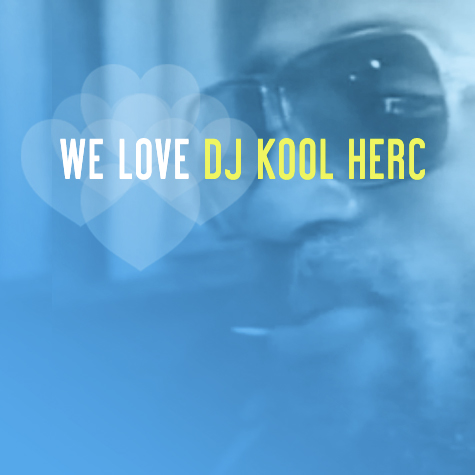
Saturn Never Sleeps, the band and label, released a new free compilation late last night to send love and thanks to DJ Kool Herc, the pioneering Jamaican-born DJ who gave birth to the hip-hop age in the West Bronx, New York City. I’m honored to have been part of the compilation along with a broad range of artists:
DaM-Funk, Damon Bennett, Dego, King Britt Presents Sylk 130, Ursula Rucker, Lushlife, ZIN, Hezekiah, Soul Litchfield, Illvibe Collective, Rucyl, Shigeto, Galapagoose (recently seen here on CDM sporting the monome software he co-created), Ras_G, Chuck Treece, Suzi Analogue, and Stef Eye
King Britt, the man at the helm of SNS, talks about his experience with Kool Herc aka Clive Campbell as he announces the release:
We Love DJ Kool Herc Compilation [Saturn Never Sleeps blog]
Whether any of this music resonates with you or not (and I do count on commenters to tell us precisely what they really think), the sheer diversity of music here is a tiny indication of just how profound DJ Kool Herc’s impact has been on music. This is just musicians doing what they do; with branches far from the original roots, it nonetheless shows the meaning of those roots to people making music of all kinds.
The impetus for this compilation – and many others in the music community – is an awareness of that tremendous debt, as well as the sobering reality of living in the US without health insurance. A lack of health insurance meant that Herc was recently unable to get needed health care when he faced illness, mounting bills, and surgery needed for kidney stones. I’m told he’s out of the woods for now, thanks to support he’s received (including assistance from Russell Simmons, though Saturn Never Sleeps is still welcoming donations via the site for the artist, his family, and the cause:
http://www.djkoolherc.com/
The issue with health insurance is larger than any one person. As his family writes on that site:
We also know that many of hip-hop’s pioneers and artists, like many Americans, have faced and will continue to face similar circumstances. So we call on the hip-hop community to come together to figure out positive solutions around health care and to advocate on behalf of the artists who made this culture and movement the global force for change that it is.
It’s an appropriate topic. In the impact of hip-hop on DJing, electronic music, and music culture, the political and musical have always gone hand in hand. At 1520 Sedgwick, where Kool Herc held his parties and developed techniques used globally by DJs today, hip-hop music culture was a form of resistance to a community ripped apart by NYC “master builder” Robert Moses’ Cross-Bronx Expressway.
From the local and personal grew musical forms that were expressive and universal.
Although the rhyming narration is a bit funky, it’s worth checking out this excerpt of a documentary on the early days of hip-hop, explaining just how DJ Kool Herc became known as its “father.”
The major technical innovation – the one that would go on to influence the likes of Grandmaster Flash – was what Herc first called the “merry-go-round,” the combination of breakbeats on top of one another to create a seamless mix. Saying that all DJing today owes some of its legacy to that breakthrough almost isn’t far-reaching enough; the resulting music transformed the way we hear rhythm, the emergence of remix musical culture, and aided the evolution of recorded music out of its EP- and LP-sized containers. (It certainly wasn’t the only breakthrough, but it began a parade of changes that form today’s mashable, digital musical culture.)
Saying that isn’t as useful as showing that, though. Here’s Kool Herc demonstrating the technique. It’s so commonplace now, it may be hard to imagine it ever having been unconventional.
Here’s a great interview from 1989 by Davey D, where – in musical time – the span of a handful of years had already made 1520 Sedgwick seem like ancient history. But the place of that landmark on the historical timeline of modern music has at least been recognized by the State of New York, the birthplace of hip-hop.
Interview w/ DJ Kool Herc: 1989 New Music Seminar by Davey D
That music has now become global, not just the product of its West Bronx origins. But as a New Yorker and an American and a musician, I hope we take that musical legacy and build for better times – build a city that is more caring to its residents, and a nation and planet that cares for its peoples’ health, across the board. I think there’s a reason the music and the parties sound optimistic: it’s optimism that those struggles aren’t in vain. Music can’t solve the nuanced problems of health care policy, and too often it fails to pay our bills. But it can give voice to that optimism.